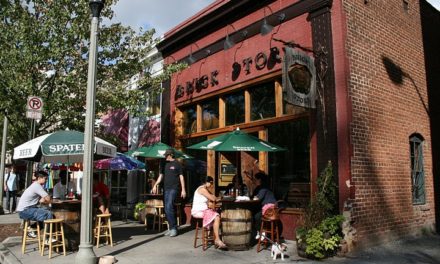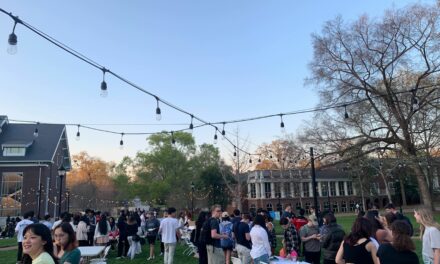If I told you I discovered Saba over the weekend, would that mean anything to you? Who is this Saba? Where is she from? A particular mix of an alcoholic drink, perhaps? Maybe a religion from the tribes of Africa.
The restaurant world is a cruel one. Dining rooms whose servers line the walls anxiously waiting for customers who will never come suffer so because they just aren’t good enough. The prices are too high. Their kitchen is too slow. The dress code is smart casual, but the food is anything but.
In the case of Saba, an unsuspecting sidewalk restaurant with a knack for homemade pastas and dangerously addicting ciabatta bread, it’s only a matter of its obscure location that keeps lines modestly short and maybe even the prices agreeable.
The restaurant is easy to forget about, tucked away in a quiet corner besides Domino’s Pizza practically behind the Emory Village. Not so forgettable is the food.
Last September, the restaurant burned down but later reopened in May. While I did not know Saba pre-fire and what once was, I know Saba now. Inside, a crowd of diners much older than Emory’s 18-to-22 demographic settles into black, wooden tables, and at the front behind a small bar, a waitress waits for them to walk up and place their order. Occasionally, two or three Emory students walk in.
Saba’s menu reads simply and directly without the silly garnishes or pretentious baby carrots. Like a traditional Italian grandmother who’s had two shots of espresso, many of Saba’s dishes take the traditional route but with added kicks.
There’s the surprisingly light four-cheese ravioli, but there’s also the warm and inviting pumpkin and ricotta cheese ravioli in a brown butter sauce. The inspiration for Saba’s spinach ravioli with Thai chicken and peanut curry sauce certainly did not come from anywhere on the Italian peninsula, but the pasta is firm – al dente, if you will – and the sauce nutty in the way Thai sauces often are.
By far the best value on the menu is the lamb ragu with rosemary and mint. Large chunks of tender lamb mingle in a bed of homemade fettuccine noodles. The ragu is sparse yet distinct, coating the noodles in a mint and rosemary sauce. And in typical Italian fashion, the portion size is overly appropriate for only $10.50.
In many ways, the ragu is representative of what Saba stands for. Much like the restaurant, the dish isn’t decorated with over the top frou-frou. It’s simple and domestic, delicious and filling, and as unpretentious as a meal at home in front of the television. You don’t even have a waiter to fill your drink order. That’s your job.
Maybe it’s dangerous praising a restaurant whose lines are usually short and whose dining room always has a table open.
Whatever.
Saba has kept its sauces simmering for long enough. It’s time the Emory community takes a break from late-night Chinese and CVS munchies and brings Saba’s sauces to a boil.
–By Evan Mah, October 4, 2010
The Emory Wheel was founded in 1919 and is currently the only independent, student-run newspaper of Emory University. The Wheel publishes weekly on Wednesdays during the academic year, except during University holidays and scheduled publication intermissions.
The Wheel is financially and editorially independent from the University. All of its content is generated by the Wheel’s more than 100 student staff members and contributing writers, and its printing costs are covered by profits from self-generated advertising sales.






congratulations for the beautiful text
como reconquistar http://www.outrachance.com.br/
Gray'{s|utes|azines|ersus|ohydrates|S} Body structure Theatre Series
Dining Room Seats and Dinner Furniture For the Wonderful Dinner Experience